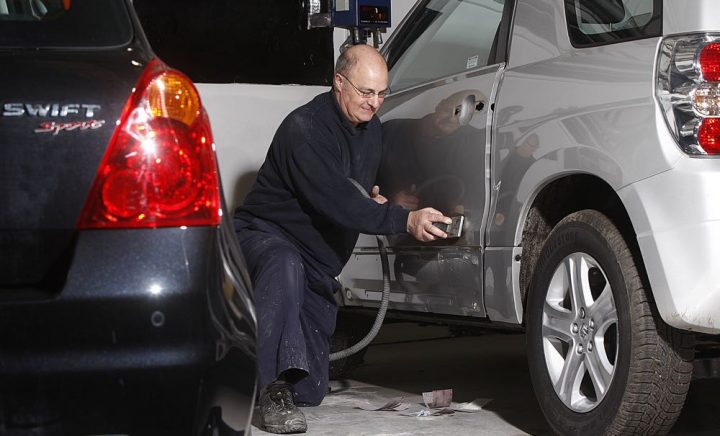With more than 12,000 online searches made every month in the UK for ‘car scratch repair’, car selling expert Autotrader is warning that popular DIY fixes trending on social media could end up costing drivers twice as much in professional repairs.
Autotrader interviewed expert mechanic Hannah Gordon to investigate the TikTok car scratch fixes that can do more harm than good to your vehicle, revealing how car scratches can escalate from £90-£120 in repair costs to over £200 when DIY attempts backfire.
The Viral Hacks That Make Car Scratches Worse
Despite being constantly shared across social platforms, many popular scratch fixes don’t work and can even cause additional damage, one of which is toothpaste. Hannah explains: “Toothpaste is a hack constantly pushed on social media but in my experience, it doesn’t work at all. Instead, use a fine cutting paste which is made for the job.”
T-Cut is a traditional favourite to hide the scratches, but Hannah Gordon advises it’s only effective on minor scratches: “Its low abrasive mixture can remove the slightest scratches, but for deeper ones it really doesn’t work.”
While it might also seem tempting to reach for WD-40 instead, this creates a temporary fix that is ultimately useless. As Hannah describes: “WD-40 forms a glossy illusion that scratches are gone, but not long later you will be able to see them again.”
Nail polish is another one to avoid. While it might seem logical for paint chips, Hannah warns nail polish rarely matches the car’s colour and can dry unevenly, creating raised patches in the bodywork. The opposite of what you want when trying to fix a scratch, since it might draw even more attention to the area.
While it’s tempting to try a five-minute fix you’ve seen online, sometimes the quickest solution ends up being the costliest. Hannah Gordon explains the financial impact of choosing to opt for a home remedy rather than a professional repair: “A small scratch that’s gone beneath the paint often costs between £90-£120 for a mobile company to fix.
“If a DIY job goes wrong then the whole panel may then need to be sanded back and the paint ‘blown in’ (a process where a section is resprayed and blended) to match the nearest panels, this could cost north of £200.”
Not to mention, doing non-professional repairs could affect your car’s warranty or an insurance claim.
Avoid Autumn Hazards: How to Protect Your Car’s Paintwork
With hedges overgrown from summer and back-to-school traffic in full swing, drivers are at a high risk this season from car scratches.
Experts suggest the best ways to avoid car scratches this autumn include:
- Using parking sensors to detect obstacles before contact
- Driving away from road edges where bushes and other elements expose your car to risks
- Applying paint protection film (PPF) as a barrier against scratches but also from UV damage
And always seek professional assessment before attempting repairs. “Car buyers are always looking for ways to knock that little bit extra off the asking price and any scratches to the bodywork will enable this.” Hannah notes. “When selling a car, I would always have it looking its best regardless of how much money it is up for.”
